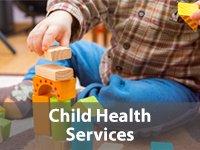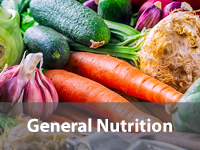Breastfeeding

During the ongoing COVID-19 pandemic, take everyday steps to keep your child safe:
-Wash hands before touching your baby
-If possible, wear a facemask while breastfeeding
-Wash hands before touching bottle/breast pump parts
Give Your Baby the Best
Research has shown that there’s no better food than breast milk for your baby’s first year of life. Breastfeeding provides lots of health, nutritional, economical and emotional benefits to both mother and baby.
When Will I Start Producing Milk?
A mother’s first milk is called ‘colostrum.’ Moms start making colostrum during pregnancy, and it’s ready as soon as baby is born. Colostrum is usually yellow in color and is often referred to as “liquid gold,” because it prepares baby’s system for healthy digestion and builds immunity.
How Often Should I Feed My Baby?
Your newborn needs frequent feedings to grow and feel full. Breastfeed your baby at least 8 to 12 times within a 24-hour period. You should start breastfeeding early—preferably right after delivery. After the first few days, look for about 6 wet diapers per day, and expect three or more stools by Day 4. If baby seems satisfied after feedings, then you’re doing great!
Does Breastfeeding Hurt?
Having the correct latch and position is important for a successful breastfeeding experience. Be sure that both you and baby are in a comfortable and relaxed position before starting. If you’re experiencing any pain, reach out to a breastfeeding expert or call your healthcare provider. If you participate in WIC, call your lactation counselor!
Is It Normal for Breasts to Feel Full and Swollen?
If your breasts feel uncomfortably full, you may be experiencing engorgement. This can be caused by ineffective and/or infrequent removal of milk from the breast, resulting in over-fullness. Moms are encouraged to continue breastfeeding and offer the breast frequently to avoid painful engorgement.
Can I Breastfeed if I Return to Work?
Yes! There are many benefits of breastfeeding after returning to work, including fewer work absences due to infant illness, lower expenses for infant healthcare and lower expenses for infant nutrition. If you plan on returning to work, we recommend that you use a breast pump to express milk throughout the day and maintain your milk supply.
Breastfeeding Support through WIC
WIC participants have valuable access to Peer Breastfeeding Counselors and Lactation Counselors. This support team helps pregnant women and breastfeeding moms achieve their breastfeeding goals. Some of the many benefits of WIC breastfeeding support include:
- One-on-one counseling with certified breastfeeding peer counselors and/or lactation counselors
- Call-in support available Monday through Friday
- Individual and group classes covering breastfeeding benefits, what to expect after baby is born, the differences between breast milk and formula, how dads can get involved in feeding, and much more.
Call your nearest health department to learn how to join WIC!
Learn about our related health services:
Additional Breastfeeding Resources:
USDA Nondiscrimination Statement - December 2022
Georgia Special Supplemental Nutrition Program for Women, Infants, and Children (WIC)
English Nondiscrimination Statement – Full Statement
In accordance with federal civil rights law and U.S. Department of Agriculture (USDA) civil rights regulations and policies, this institution is prohibited from discriminating on the basis of race, color, national origin, sex (including gender identity and sexual orientation), disability, age, or reprisal or retaliation for prior civil rights activity.
Program information may be made available in languages other than English. Persons with disabilities who require alternative means of communication to obtain program information (e.g., Braille, large print, audiotape, American Sign Language), should contact the responsible state or local agency that administers the program or USDA’s TARGET Center at (202) 720-2600 (voice and TTY) or contact USDA through the Federal Relay Service at (800) 877-8339.
To file a program discrimination complaint, a Complainant should complete a Form AD- 3027, USDA Program Discrimination Complaint Form which can be obtained online at: https://www.usda.gov/sites/default/files/documents/USDA-OASCR%20P-Complaint-Form-0508-0002-508-11-28-17Fax2Mail.pdf, from any USDA office, by calling (866) 632-9992, or by writing a letter addressed to USDA. The letter must contain the complainant’s name, address, telephone number, and a written description of the alleged discriminatory action in sufficient detail to inform the Assistant Secretary for Civil Rights (ASCR) about the nature and date of an alleged civil rights violation. The completed AD-3027 form or letter must be submitted to USDA by:
- mail:
U.S. Department of Agriculture
Office of the Assistant Secretary for Civil Rights 1400 Independence Avenue, SW
Washington, D.C. 20250-9410; or - fax: (833) 256-1665 or (202) 690-7442; or
- email: program.intake@usda.gov
This institution is an equal opportunity provider.
Aviso de No Discriminación - December 2022
Georgia Special Supplemental Nutrition Program for Women, Infants, and Children (WIC)
Spanish Nondiscrimination Statement – Full Statement
De acuerdo con la ley federal de derechos civiles y las normas y políticas de derechos civiles del Departamento de Agricultura de los Estados Unidos (USDA), esta entidad está prohibida de discriminar por motivos de raza, color, origen nacional, sexo (incluyendo identidad de género y orientación sexual), discapacidad, edad, o represalia o retorsión por actividades previas de derechos civiles.
La información sobre el programa puede estar disponible en otros idiomas que no sean el inglés. Las personas con discapacidades que requieren medios alternos de comunicación para obtener la información del programa (por ejemplo, Braille, letra grande, cinta de audio, lenguaje de señas americano (ASL), etc.) deben comunicarse con la agencia local o estatal responsable de administrar el programa o con el Centro TARGET del USDA al (202) 720-2600 (voz y TTY) o comuníquese con el USDA a través del Servicio Federal de Retransmisión al (800) 877-8339.
Para presentar una queja por discriminación en el programa, el reclamante debe llenar un formulario AD-3027, formulario de queja por discriminación en el programa del USDA, el cual puede obtenerse en línea en: https://www.fns.usda.gov/sites/default/files/resource-files/usda- program-discrimination-complaint-form-spanish.pdf, de cualquier oficina de USDA, llamando al (866) 632-9992, o escribiendo una carta dirigida a USDA. La carta debe contener el nombre del demandante, la dirección, el número de teléfono y una descripción escrita de la acción discriminatoria alegada con suficiente detalle para informar al Subsecretario de Derechos Civiles (ASCR) sobre la naturaleza y fecha de una presunta violación de derechos civiles. El formulario AD-3027 completado o la carta debe presentarse a USDA por:
- correo:
U.S. Department of Agriculture
Office of the Assistant Secretary for Civil Rights 1400 Independence Avenue, SW
Washington, D.C. 20250-9410; or - fax: (833) 256-1665 o (202) 690-7442; o
- correo electrónico: program.intake@usda.gov
Esta institución es un proveedor que ofrece igualdad de oportunidades.


 Contact Us
Contact Us Locations
Locations Job Openings at North Central Health District
Job Openings at North Central Health District Internships
Internships Board of Health
Board of Health Cost and Insurance
Cost and Insurance Privacy Policy
Privacy Policy Teens & Adults
Teens & Adults For Children
For Children Other Programs
Other Programs County Environmental Health Offices
County Environmental Health Offices Chemical Hazards
Chemical Hazards Tourist Accommodations
Tourist Accommodations Food Service
Food Service Rabies Control
Rabies Control Lead Poisoning Prevention
Lead Poisoning Prevention Body Art
Body Art Land Use
Land Use Swimming Pool Program
Swimming Pool Program Water Testing for Private Wells
Water Testing for Private Wells Environmental Health Complaints
Environmental Health Complaints Georgia Food Recall Alerts
Georgia Food Recall Alerts Personal & Family Preparedness
Personal & Family Preparedness Emergency Preparedness for Functional & Access Needs
Emergency Preparedness for Functional & Access Needs Severe Weather Preparedness
Severe Weather Preparedness Emergency Preparedness Training
Emergency Preparedness Training Medical Reserve Corps
Medical Reserve Corps Regional Healthcare Coalitions
Regional Healthcare Coalitions Strategic National Stockpile/Medical Countermeasures
Strategic National Stockpile/Medical Countermeasures




